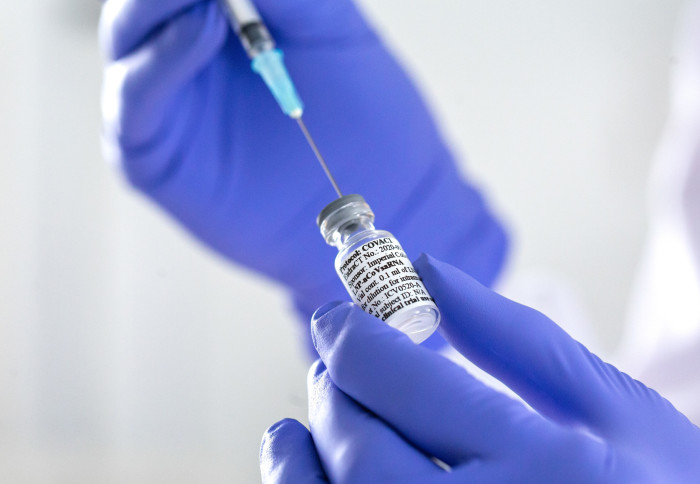COVID-19 vaccine technology can be used for future pandemics, says expert
by Maxine Myers

The researcher developing a potential new coronavirus vaccine said the technology behind it could also be used for future pandemics, in a recent talk.
Professor Robin Shattock, from the Department of Infectious Diseases at Imperial College London, is leading the development of a candidate vaccine. It is currently being tested in human trials to establish whether it can be well tolerated and produce an effective immune response against COVID-19.
Professor Shattock was speaking at a recent Imperial College Academic Health Science Centre (AHSC) COVID-19 online seminar series which took place earlier this month.
Unlike other vaccines that are developed by growing a virus or a protein, the Imperial vaccine is produced through a synthetic process-self-amplifying RNA technology. It uses synthetic strands of genetic code (called RNA), based on the virus’s genetic material. Once injected into muscle, the RNA self amplifies – generating copies of itself – and instructs the body’s own cells to make copies of a spiky protein found onthe outside of the virus. This should train the immune system to respond to the coronavirus so the body can easily recognise it and defend itself against COVID-19 in future.
Professor Shattock explained that this new technology has many advantages, such as the ability to produce millions of doses of the vaccine in weeks and its low cost. He also believes the technology can be adapted to enable scientists to respond to future pandemics more quickly.
The coronavirus vaccine has undergone rigorous pre-clinical safety tests and in animal studies it has been shown to be safe and produced encouraging signs of an effective immune response.
By August, 300 healthy participants will receive two doses of the vaccine. If the vaccine is safe and shows a promising immune response in humans, then larger Phase III trials would be planned to begin later in the year with around 6000 healthy volunteers to test its effectiveness. The ultimate aim is for the vaccine to be rolled out in the UK and around the world to provide protection against COVID-19.
Article text (excluding photos or graphics) © Imperial College London.
Photos and graphics subject to third party copyright used with permission or © Imperial College London.
Reporter
Maxine Myers
Communications Division